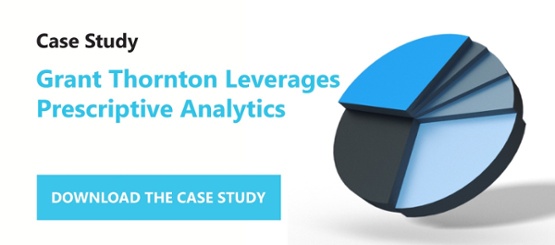Reducing risk from economic, political, and societal volatility
In 2016, businesses and markets found themselves confused and even panicked as political and societal events took unexpected turns. 2017 is likely to be no different: President-Elect Trump will start his term in office, bringing significant change; the UK is likely to trigger Article 50, beginning their exit from Europe; and upcoming elections in countries such as France offer the serious possibility of a far-right victory.
Of course, these changes are also possibilities: Trump has said he will cut corporation tax (views are still largely divided on how this will affect businesses), and the UK's exit from Europe may see the start of new trading deals and opportunities across the world.
For CFOs, the key takeaway is that in the last year the world has got a lot less predictable. Your teams must prioritize the allocation of significant resources to strategic planning to assess the risks and opportunities. One strategy for reducing this risk is to employ rolling forecasts: a survey of top-performing businesses by the Aberdeen Group found that 71% of them mitigated volatile risks by continuously updating their forecasts to reflect the conditions they face.
Cyber security threats continue to increase
Every year, fresh statistics confirm what we all know: cyber security risk is steadily increasing and shows no sign of slowing down. Despite attempts by businesses to protect themselves, the threats keep coming: 2016 saw a 56% increase in the theft of “hard” (damaging) intellectual property.
Increasingly, it is the CFO who is responsible for cyber security (a recent survey of CFOs found 38% saw themselves as the person most responsible for this area in their organization).
Even if you are not responsible for cyber security, your business’s most sensitive data is under your control, which should put cyber security at the top of your agenda in 2017. It is essential that you must address the cyber security risks that threaten your company and prepare your business for every eventuality.
Technological advances necessitate replacement of outdated legacy systems
The amount of data we can now track and store is staggering, but many CFOs are failing to make use of this data. In the last couple of years, we’ve gone from a problem where we’re not tracking enough data, to one where we’ve got so much we don’t know what to do with it.
For CFOs, much of the problem lies with legacy systems which cannot keep up with the data available. In 2017, CFOs with these outdated systems will come under increased pressure to deliver better reporting and the gap between expectations and reality will start to increase – to close it, you’ll need to update those legacy systems and start taking advantage of some of the latest technologies such as machine learning and AI.
In a report by the World Economic Forum, 75% of executives indicated they believed a significant portion of corporate audits (30%) would be performed by AI by 2025. Ignoring these technologies could cede a significant competitive edge to your competition, but they come with risks too. CFOs in 2017 will need to embrace these technologies to improve their business while managing the costs and risks associated with them.
Expanding responsibilities necessitate further personal growth
Big data, cyber security, IoT, AI: long-gone are the days where a CFO just needed to crunch the numbers and put out solid annual plans and monthly reports. Your role now necessitates understanding your entire business, including the issues that threaten it and the technology that can enhance it. It is your job to help manage your organization through this changing risk landscape, and it takes a lot more than just financial know-how to achieve it.
Your greatest challenges in 2017 are likely to test your leadership, your understanding of new and changing technologies and regulations, and your ability to use this knowledge to steer your business in the right direction. A recent poll found that more than 70% of finance executives believed supporting and improving decision-making was their most important goal for 2017.
So, if your non-financial (e.g., advanced analytics) skill set is lacking, 2017 may be the year where you need to step up in these areas.







